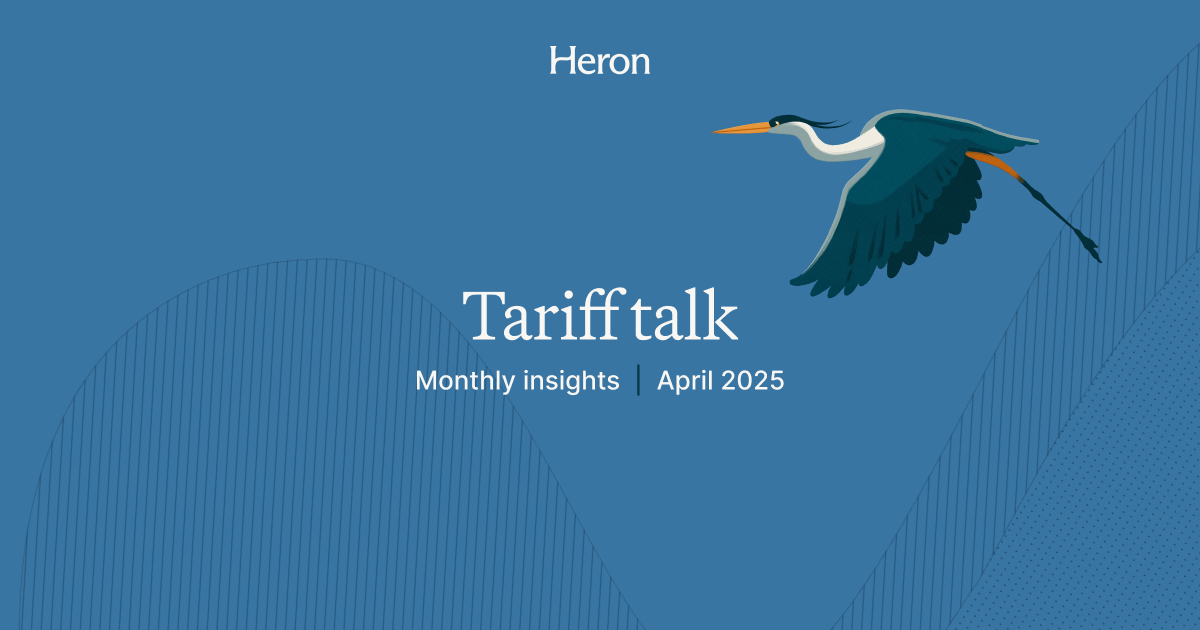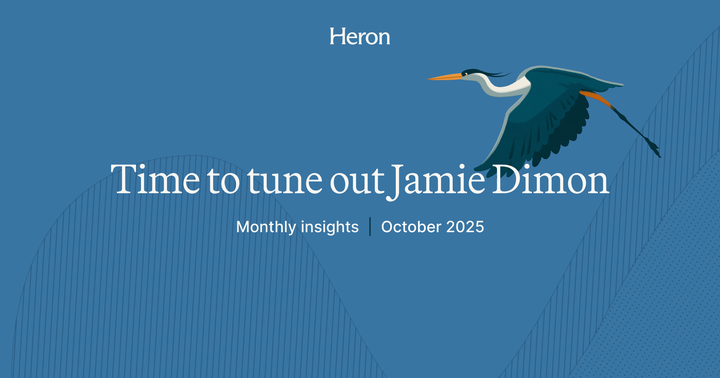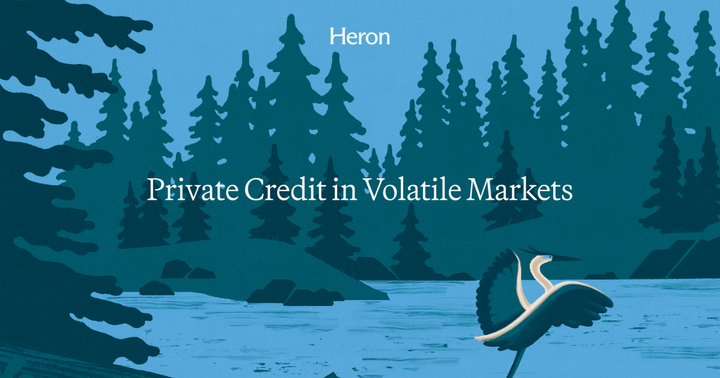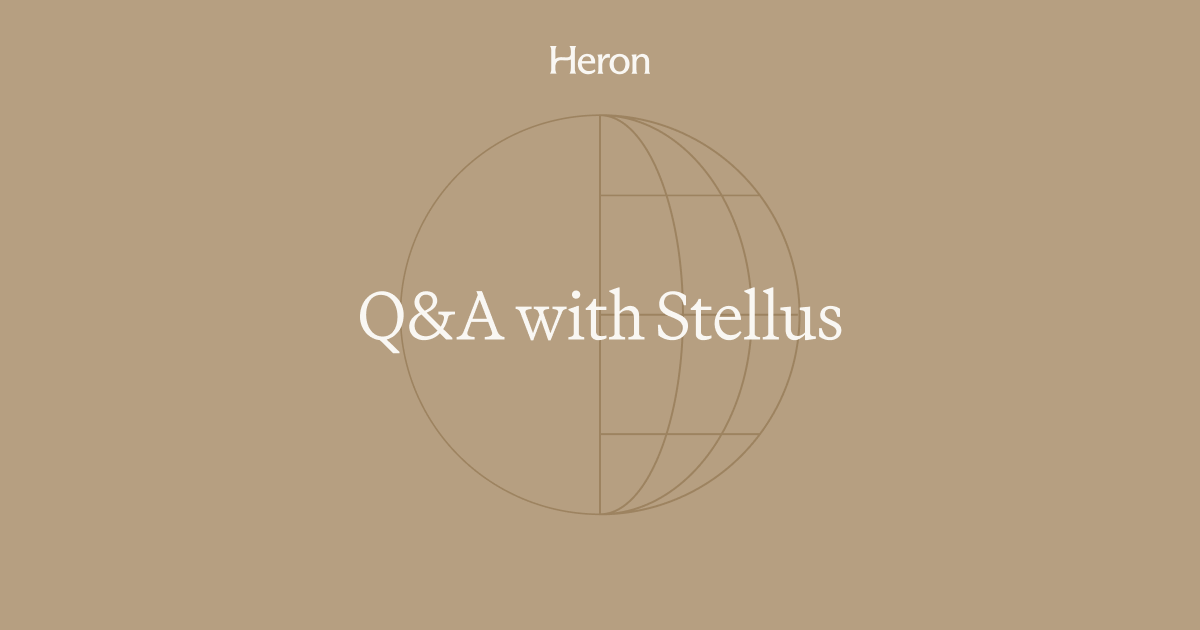Monthly Insights From Heron: Tariff Talk (April 2025)
In our first Monthly Insights, we dive into how Trump's tariffs are impacting private credit and Heron's portfolios.

Monthly Insights #1, April 2025
In this issue:
- Tariff Talk: How Do Tariffs Impact Heron?
- Heron Blogs: Volatility and Private Credit Q&A
- Heron Fund Facts
- Quote of the Month From Mark Twain
Current Events: Tariff Talk
What's going on?
- Liberation Day: On Wednesday, April 2, President Trump declared "Liberation Day" to usher in a new era for the American economy.
- Tariffs with an on/off button: The President imposed and then suspended tariffs, creating wild market volatility and confusion around the globe.
How does it impact private credit?
Sector matters: Industries with tangible goods and cross-border transactions will likely be hit the hardest.
- For new loan originations, lenders will most likely avoid sectors exposed to global trade such as consumer discretionary, manufacturing, and industrial equipment.
- Domestically-oriented sectors such as health care services and software will be less impacted by global trade.
The opportunity: Offensively, direct lenders see an opening to capture business as traditional banks quickly went risk off and are backing off from lending. In this light, Bloomberg published an article titled, Private Credit Swoops In as Market Chaos Rattles Banks’ Debt Deals. This could mean:
- With less competition, private credit firms may be able to structure more lender-friendly deals.
- Firms with capital to use may be able to selectively purchase heavily discounted, high-quality loans from the public markets, potentially leading to long-term upside for investors.
The risk: Defensively, many private lenders will likely bolster risk management. To the extent tariffs result in prolonged economic stresses, covenant breaches could increase.
- Senior secured lenders should be able to balance tight risk controls with allowing borrowers room to breathe.
- Absent a crisis to the degree we saw in 2008, credit losses would likely only affect junior capital, with less risk for first lien loans. (Remember: The average fund on Heron has ~95% of exposure in first lien loans.)
Tips for investors: Private credit investors will benefit from:
- Investing with experienced managers
- Prioritizing first lien loans
- Ensuring portfolio diversification
How do tariffs impact Heron?
Our clients frequently ask about the impact of tariffs on their Heron investments. Our answer: Likely minimal impact over the long run. This is primarily due to three things:
- We focus heavily on floating-rate, first-lien loans, which account for ~95% of the average fund on Heron.
- Approximately 90% of the underlying borrowers are U.S. middle-market companies. These companies generally tend to be more-insulated from global trade, with ~84% of revenues generated domestically.
- The underlying key credit metrics remain healthy (<5x debt to EBITDA, approximately 2x interest coverage ratio, LTV below 50%), giving these funds some room to navigate this uncertainty.
Thanks for reading,
Khang Nguyen
Heron Chief Credit Officer
Invest in private credit with Heron >
From the Heron Blog
- How Private Credit Can Help Investors Weather Volatile Markets
- Q&A With a 20+ Year Private Credit Veteran: Stellus
Heron Fund Facts
Fact: The average fund manager on Heron today has 19 years of experience with an average net realized credit loss of 0% since inception.
Why It Matters: Having decades of experience means most of our managers have survived and thrived through multiple market cycles, delivering investors consistent passive income.
Quote of the Month
“Whenever you find yourself on the side of the majority, it is time to pause and reflect.”
-Mark Twain




